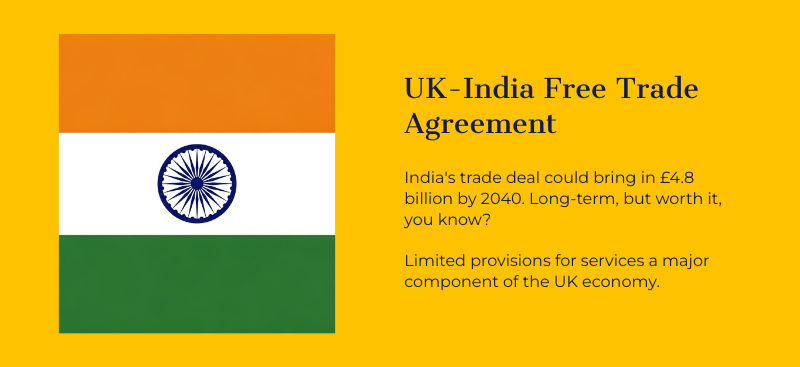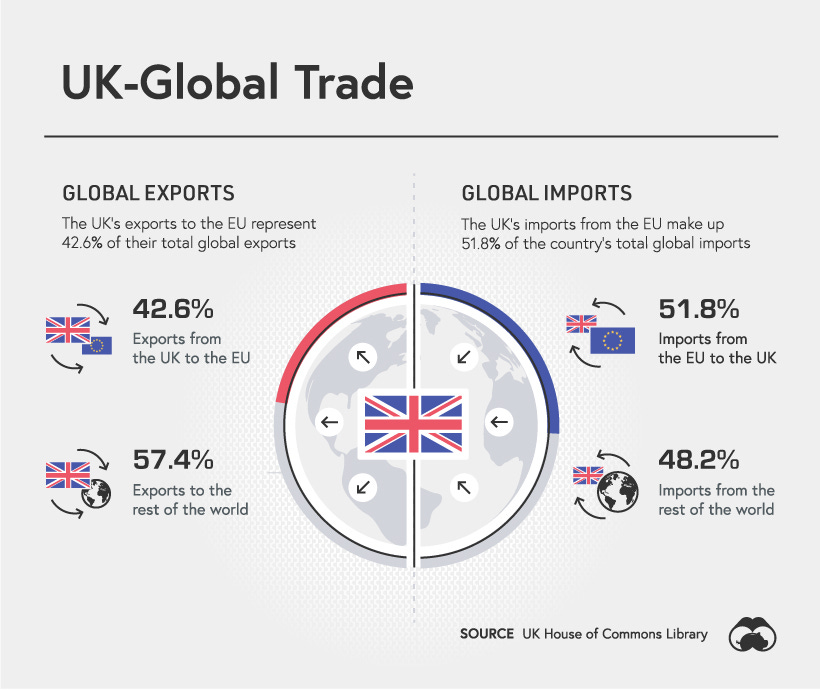Trade Wars: The Rise of the UK
How Britain's calm diplomacy is reshaping global trade in turbulent times
In a galaxy gripped by rising tariffs and trade skirmishes, a quiet force is emerging. While superpowers like the US and China escalate their battles, the UK has launched a diplomatic offensive—not with firepower, but with trade deals. In just one month, the UK signed three strategic agreements. Could this calm Jedi-like strategy be the economic balance the galaxy needs?
The Jedi of Trade: Keir Starmer’s Strategic Month
Keir Starmer, cast as a new Luke Skywalker, has shown that staying calm during a period of crisis can be beneficial. Not only did he manage to secure a deal with the US sooner than expected, but he also signed a new trade agreement with the European Union - one that will not only support the UK’s economic growth but also enhance the well-being of British citizens. In the same month, he finalised a deal with India, securing access to its vast market.
The UK government has demonstrated strategic acumen in using trade diplomacy to promote domestic growth. The UK–US trade deal can, at least partially, be characterised as a response to the legacy of Trump-era tariffs. By focusing on reducing tariffs on steel, aluminium, and car exports, the UK has minimised the harm caused by the protectionist policies previously introduced. This trade deal also aligns with the UK’s broader ambition to diversify trade after Brexit. Most notably, Britain opted not to increase tariffs on US products, instead choosing to maintain a constructive relationship and act as a calm power amid escalating global tensions.
The UK–India Deal: Sectoral Gains, Long-Term Promise
While the UK–US deal brings limited direct economic benefits, the UK–India Free Trade Agreement goes further. India will eliminate or reduce tariffs on 90% of UK goods exports, including major cuts to Scotch whisky, automobiles, and medical devices. In return, the UK will remove tariffs on 99% of Indian exports, benefiting sectors such as textiles, gems and jewellery, and processed foods. The agreement is expected to boost the UK economy by £4.8 billion by 2040 and increase wages by £2.2 billion annually.
This agreement focuses on sector-specific gains: the UK will gain a competitive edge in India’s markets for alcoholic beverages and cars, while India will expand its exports of textiles and engineering goods to the UK. As a result, British consumers may soon see cheaper clothing, jewellery, and even frozen prawns. For example, tariffs on whisky and gin exported from the UK to India will fall from 150% to 75%, before dropping to 40% by year ten. Car tariffs will fall from more than 100% to just 10%.
However, like the US deal, the agreement with India offers very limited opportunities for the UK’s services sector, the cornerstone of its economy. Additionally, India currently accounts for only a small share of UK trade, further limiting short-term impact.
The UK–EU Deal: Economic and Political Reconnection
Despite the services sector being largely omitted from these two deals, the UK has taken care to uphold its food standards. The UK–US agreement, while allowing greater access for American products, makes no specific commitments on food standards. This gave the UK flexibility to strike a more harmonised agreement with the EU.
The new EU trade deal could raise the UK’s GDP by up to 2.2%, as the EU remains the UK’s largest trading partner. Restoring a closer relationship with the EU is likely to deliver greater economic gains than any other trade agreement. Crucially, by maintaining EU-aligned food rules, the UK has enabled the removal of border checks on animal and plant shipments, offering relief to small businesses hit hard by post-Brexit paperwork.
It is estimated this new agreement will add £9 billion to the UK economy and reduce food prices, an especially important benefit for low-income households, which have faced food inflation driven by Brexit, supply chain disruptions, and climate change.
But the deal goes even further. It establishes a formal UK–EU defence and security pact, addressing a major weakness of the previous relationship. UK defence firms will gain access to €150 billion in EU-funded projects, and both sides will now share intelligence and coordinate on sanctions. The UK and EU will also link their carbon markets to avoid carbon border taxes on goods like steel and cement, saving £800 million and protecting British industry.
British holidaymakers will benefit from streamlined travel across Europe, as they regain access to EU e-gates. This will reduce long queues at airports and make holidays more relaxing. A new pet passport system will also simplify travel for UK pet owners. Meanwhile, the agreement opens the door to renewed free movement for young people, enhancing the UK’s human capital by enabling more international experience and skills development.
Of course, Britain made concessions too. The deal has been criticised for granting EU fishing vessels access to UK waters until 2038. To offset this, the government has pledged a £360 million “fishing and coastal growth fund” to invest in new technology and equipment.
The UK has also agreed to maintain alignment with EU food standards, raising sovereignty concerns. And with minimal provisions for the services sector, some question the overall efficacy of these trade deals.
Nevertheless, the direct benefits to UK businesses and households are significant and immediate. From reduced food costs to increased market access, the UK has prioritised economic stability and strategic diplomacy.
In an era of rising walls and hardened borders, the UK has chosen a different path: negotiation over escalation, alliances over animosity. These deals don’t just mark an economic shift, they signal a foreign policy doctrine grounded in stability, access, and strategic calm. In the Trade Wars of this galaxy, the UK may yet prove that diplomacy is the strongest force of all.










